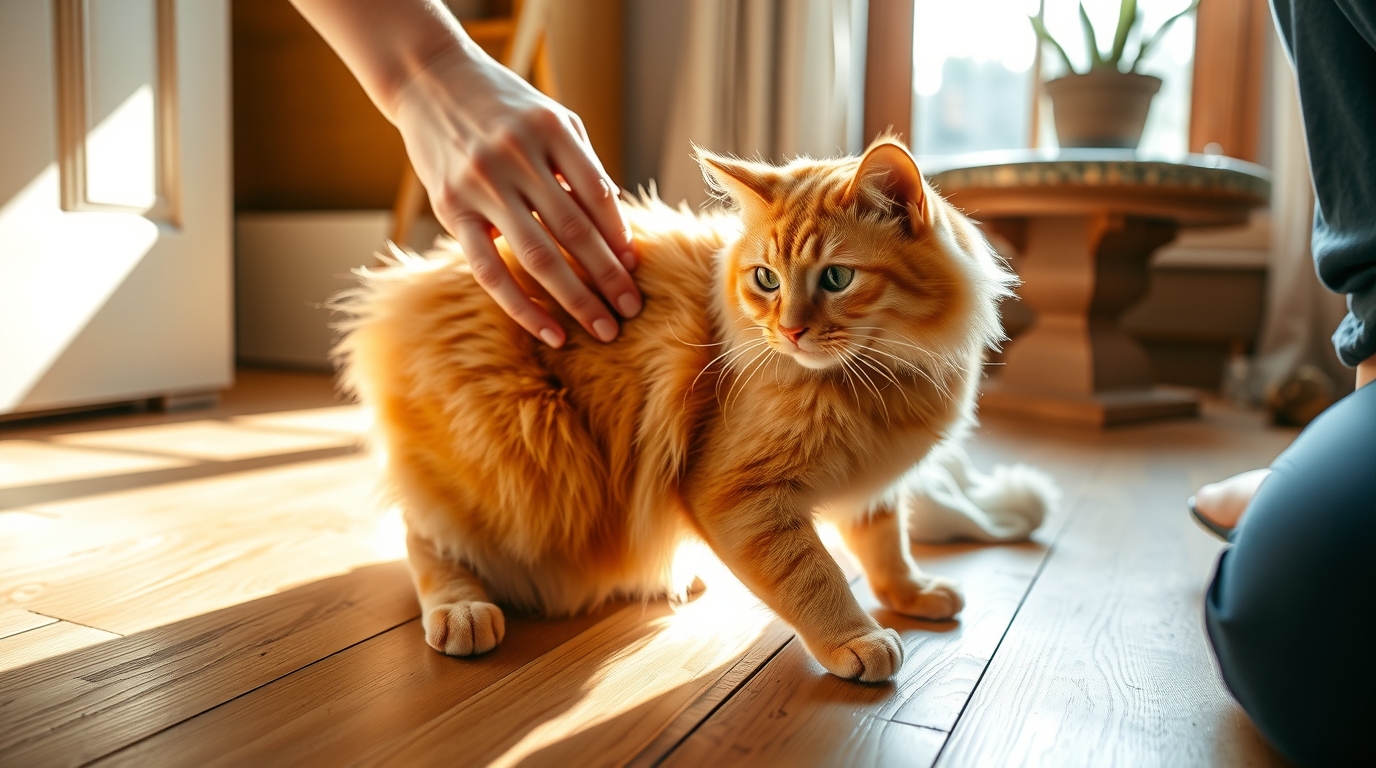Owning a cat is one of life’s greatest joys. These intelligent, affectionate, and independent companions bring warmth and love to any home. However, caring for a cat requires more than just food and cuddles. It takes understanding, patience, and attention to their emotional and physical needs.
In this comprehensive guide, you’ll learn exactly how to take care of a cat from proper feeding and grooming to health checkups and creating a safe, stimulating environment. Whether you’re a first-time cat parent or a long-time feline lover, these cat care tips will help your furry friend live a long, happy, and healthy life.
1. Create a Safe and Comfortable Environment
Before bringing your cat home, you need to make sure your space is safe and comfortable. Cats are naturally curious creatures who love to explore, so your home should be cat-friendly.
Key Tips:
- Remove hazards: Keep cords, rubber bands, strings, and toxic plants (like lilies) out of reach.
- Set up a cozy spot: Cats love warmth and privacy. Give them a comfortable bed or blanket near a quiet area.
- Provide vertical space: Cats enjoy climbing. Add cat trees, window perches, or shelves for them to explore safely.
- Hideout zones: Create safe zones or cozy corners where they can retreat when feeling anxious or tired.
Having a stress-free environment promotes confidence and emotional well-being in your cat,especially if you’re raising a kitten or adopting a rescued cat.
2. Follow a Proper Feeding Routine

Feeding is one of the most important aspects of cat care. Cats are obligate carnivores, which means they need a diet rich in animal-based protein and essential nutrients like taurine.
Tips for Feeding Your Cat:
- Choose high-quality cat food: Look for brands that list meat or fish as the first ingredient. Avoid fillers like corn and soy.
- Feed by age and activity: Kittens need more frequent meals, while adult cats thrive on 2–3 meals a day. Senior cats may need special diets.
- Provide fresh water: Always keep a clean bowl of water available. Some cats prefer running water consider using a cat fountain.
- Limit treats: Treats should not exceed 10% of your cat’s daily calories.
Related Keyword Tip: Use search phrases like “best cat food for indoor cats” or “feeding guide for cats by age” to explore veterinarian-recommended diets.
3. Litter Training and Hygiene
Litter training is a major part of learning how to take care of a cat,especially for new cat owners. Luckily, cats are naturally clean animals and usually adapt quickly.
Steps for Effective Litter Training:
- Choose a litter box large enough for your cat to move comfortably.
- Place it in a quiet, low-traffic area.
- Scoop daily and clean the litter box weekly with mild soap and water.
- Avoid using scented litter or strong cleaning chemicals, they can discourage use.
If your cat starts eliminating outside the box, check for medical issues (like urinary infections) or environmental stress.
4. Grooming: Keep Your Cat Clean and Healthy

Even though cats groom themselves, they still need your help to stay in top shape. Regular grooming prevents hairballs, matting, and skin problems.
Cat Grooming Tips:
- Brushing: Brush short-haired cats once a week and long-haired cats every day.
- Bathing: Cats usually don’t need frequent baths. If required, use cat-safe shampoo.
- Nail trimming: Trim claws every 2–4 weeks using a cat nail clipper.
- Dental care: Brush your cat’s teeth regularly with feline toothpaste to prevent plaque buildup.
- Eye and ear cleaning: Use a soft damp cloth for wiping the eyes and ears gently.
Grooming is not just about hygiene,it’s a bonding experience that strengthens trust between you and your cat.
5. Regular Vet Visits and Vaccinations
To ensure your cat’s long and healthy life, regular vet visits are non-negotiable. Kittens should have their first vet checkup by 6–8 weeks of age, while adult cats should visit the vet at least once a year.
Vet Care Checklist:
- Vaccinations: Protect against feline distemper, calicivirus, rabies, and feline leukemia.
- Parasite control: Use flea, tick, and worm prevention treatments regularly.
- Spaying/Neutering: Helps control the cat population and reduces behavioral issues.
- Health monitoring: Keep track of weight, appetite, and litter box habits.
Regular vet checkups help catch health problems early,especially kidney issues, obesity, and dental disease, which are common in older cats.
6. Mental Stimulation and Playtime
Cats may seem independent, but they need play and interaction to stay happy and healthy. Without mental stimulation, they can develop boredom, anxiety, or destructive behavior.
Ways to Keep Your Cat Engaged:
- Use interactive toys like feather wands, laser pointers, and treat puzzles.
- Rotate toys every few days to keep things exciting.
- Provide scratching posts to fulfill their natural urge to scratch.
- Schedule daily playtime for at least 15–20 minutes.
Engaged cats are happier, more active, and less likely to show signs of stress or aggression.
7. Socialization and Emotional Care
Cats are social in their own way,they may not crave constant attention like dogs, but they do need affection, trust, and companionship.
Socialization Tips:
- Spend quiet time sitting near your cat so they can approach you on their terms.
- Use a calm voice and gentle touch.
- Avoid forcing interaction; let your cat initiate.
- Reward positive behavior with treats or praise.
If you have more than one cat, introduce them gradually. Cats are territorial and may need time to adjust to new companions.
8. Indoor vs Outdoor Care: What’s Safer?

Many cat owners debate whether to keep their cats indoors or let them roam outside. While outdoor life may seem adventurous, it carries risks like traffic accidents, fights, and diseases.
Indoor Cat Care Tips:
- Keep your indoor cat entertained with climbing furniture and windowsills.
- Offer scratching posts and safe hiding spots.
- Spend daily playtime to mimic hunting instincts.
If you do let your cat outside, use a harness and leash or provide a secured catio (outdoor cat enclosure) to give them a taste of adventure safely.
9. Signs of a Healthy Cat
Understanding your cat’s health signs can help you take quick action when needed.
Healthy Cat Signs:
- Bright, clear eyes
- Shiny coat and normal grooming behavior
- Healthy appetite and hydration
- Regular litter box habits
- Playful and alert attitude
Warning Signs to Watch For:
- Lethargy or hiding
- Loss of appetite
- Vomiting or diarrhea
- Changes in urination
- Weight loss or gain
If you notice these symptoms, contact your veterinarian immediately.
10. Caring for Senior Cats
Senior cats need extra love and attention. As they age, they become more prone to joint pain, kidney issues, and reduced mobility.
Senior Cat Care Tips:
- Feed senior cat food with lower calories and higher fiber.
- Keep water bowls easily accessible.
- Provide soft bedding and warm spots.
- Schedule vet checkups every 6 months.
- Offer gentle play to keep them active.
Your older cat will appreciate your care and return it with even deeper affection.
11. Building a Loving Bond
The most important part of cat care isn’t in the food or grooming,it’s in the love and connection you build. Talk to your cat, understand their body language, and respect their boundaries. Over time, they’ll trust you completely and reward you with their unique, loyal companionship.
Remember: A happy cat = a happy home.
Conclusion
Learning how to take care of a cat is an ongoing journey filled with patience, joy, and love. From proper feeding and grooming to playtime and emotional bonding, every small act contributes to your cat’s overall happiness.
Cats may be independent, but they thrive on routine, affection, and attention. Follow these cat care tips, visit the vet regularly, and provide a safe environment and your feline friend will enjoy a long, healthy, and fulfilling life.
Also Read:
- Best Dog Food for Vizsla Puppy: Complete Guide to Nutrition, Feeding & Top Picks
- Dog Feeding Habits Chart: Complete Guide to Feeding Your Dog 2026


